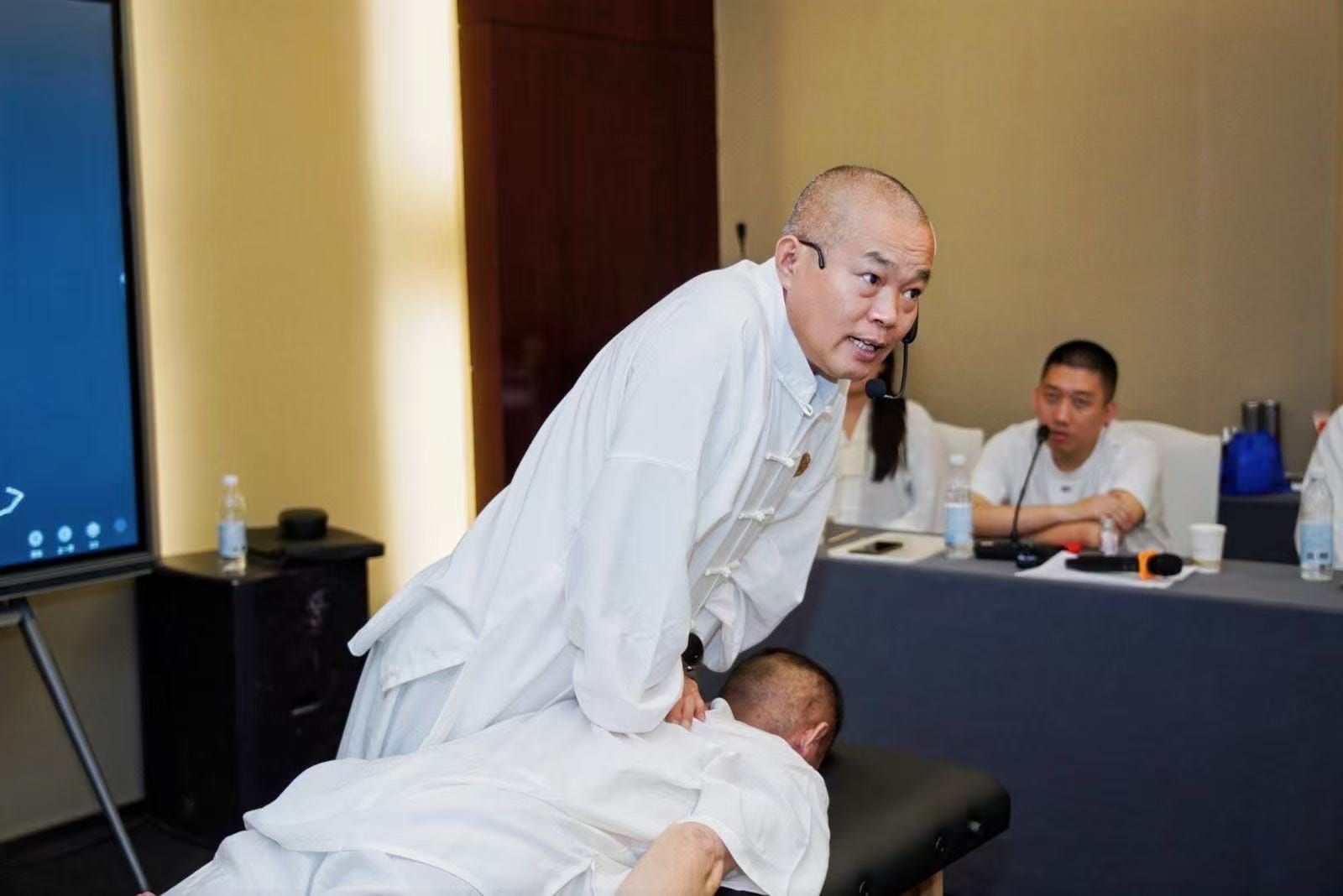My First Class with a National TCM Master—The Doctor Who Teaches Doctors and Treats Royalty

For ordinary middle-class people, it’s rare to have the chance to meet a national-level master doctor in person. They’re often too senior, focusing on teaching other physicians or treating high-level government officials and elite patients.
But, I am lucky to meet one. I recently attended Traditional Chinese Medicine (TCM) training camp where I met Dr. Zhang Senior—the father of Dr. Zhang Han., a popular TCM doctor influencer known across social media (see article). While the son is charismatic and tech-savvy, the senior Dr. Zhang is composed, quiet, and deeply rooted in tradition. He rarely appears in the public, because as a national TCM master doctor, he only teaches hospital experts. He was there to support his son and was invited to give a small talk to us.
He was around 70 years old but looked young. When he walked into the room, he didn’t need to say much to command attention. What he shared that day wasn’t about medicine itself, but about the essence of becoming a doctor. Here are my notes and three takeaways

1. True Healing Is Not a Performance—It’s Compassion in Simplicity
“Treatment is not a performance. It’s about how much you truly want to heal the patient.”
In an age where doctors are often judged by how much they know, or how impressively they speak or perform, Dr. Zhang reminded us of a deeper truth: real medicine isn’t about showing off. It’s about genuinely caring. The most effective healing often comes from the simplest methods—not due to a lack of skill, but because of deep compassion and a focus on the root cause behind the illness.
It’s like designing an iPhone. The best engineers and designers don’t add complexity for its own sake—they strip it away to uncover what people truly need. In the same way, a great doctor doesn’t hide behind technical jargon or flashy procedures. They seek clarity, simplicity, and understanding—because they care more about healing than impressing.
2. Don’t Just Use Hands—Use Your Heart
“Anyone can press an acupoint, but a real doctor can feel what lies beneath it.”
Machines can collect data, but they can’t perceive pain hidden in silence or emotions carried in the breath. A good doctor listens and feels with their heart. Two patients may have the same symptoms but require entirely different care, because their stories, emotional landscapes, and life contexts are never the same. That difference isn’t found in textbooks, it lives in human connection.
The human brain is a far subtler instrument than any machine. It can pick up on micro-signals, shifts in tone, the flicker of fear in someone’s eyes. Like an antenna tuned to invisible frequencies, a compassionate mind senses what the conscious doesn’t say and the body barely reveals. Where algorithms rely on patterns, intuition feels the undercurrent—and that’s where healing often begins.
3. Healing Comes from Practice, Not Just Books
“Books can teach you knowledge about illness, only people can teach you how to take care of another human being”
Dr. Zhang wasn’t against study—but he made it clear: real healing is earned through practice, not credentials. Medicine isn’t an academic performance. It’s a lived craft. A doctor is not made in theory, but in the space between patient and practitioner, where experience is accumulated by time, skills become muscle memories, and empathy turns into instinct
In China, there used to be a term: 赤脚医生, or barefoot doctors—a group of practitioners who often trained through apprenticeship and hands-on experience rather than formal medical school. They weren’t always licensed by academic institutions, but they were deeply trusted—because their effective results of treatment.
They’ve long been known for their ability to handle complex, even mysterious conditions that conventional hospital systems often struggle with, using methods grounded in tradition and practical wisdom.
His words challenged me to rethink the title of “doctor.” Is it granted by degrees or by lives touched? In the end, it’s not just what you know, but how effective your treat—that defines whether you are a healer.
Final Thought
Dr. Zhang Senior didn’t teach us how to treat diseases. He taught us how to understand illness in an human context. In a world filled with tools, titles, and techniques, he reminded us of something timeless: Healing begins not with knowledge, but with intention.
To become a healer, you need to firstly learn how to care a human being.



Comments ()